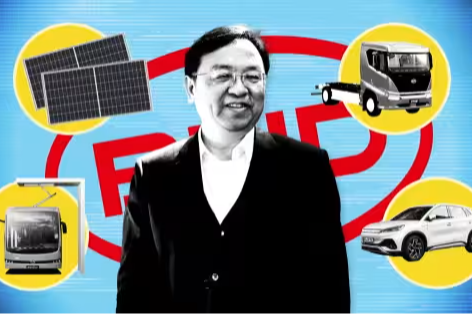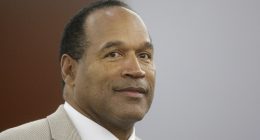Stay informed with free updates
Simply sign up to the Asia-Pacific economy myFT Digest — delivered directly to your inbox.
Good morning. The US is pushing allies in Europe and Asia to tighten restrictions on exports of chip-related technology and tools to China amid rising concerns about Huawei’s development of advanced semiconductors.
Washington wants Japan, South Korea and the Netherlands to use existing export controls more aggressively, including stopping engineers from their countries servicing chipmaking tools at advanced semiconductor fabs in China, according to five people familiar with the conversations.
The Biden administration introduced sweeping export controls in 2022 that included a ban on “US persons” — American nationals and companies — from providing direct or indirect support to certain advanced chip factories in China. But there are far fewer restrictions preventing Chinese groups from hiring engineers from the allies.
The US has become increasingly concerned about the speed at which Chinese groups are developing advanced chips despite the tougher American controls. Huawei’s latest smartphone, the Mate 60 Pro, included an advanced chip that surprised export control experts in the US government.
Here’s more on Washington’s concerns — plus our latest coverage on the tech tensions between the two rival powers:
-
Opinion: The US government has now spent over half its $39bn in Chips Act incentives, which have been surprisingly successful so far, writes Chris Miller.
-
TikTok: Insiders at the viral video app say there is a growing culture clash between its Chinese owners and their American staff.
And in other US-China news, Antony Blinken holds talks today with Chinese foreign minister Wang Yi in Beijing and is likely to meet President Xi Jinping.
The US secretary of state met yesterday with the powerful Shanghai Communist party boss Chen Jining, who warned that Washington and Beijing must choose between “confrontation or co-operation”.
Here’s what else I’m keeping tabs on today and over the weekend:
-
Japan monetary policy decision: The Bank of Japan is likely to hold off from raising rates today. But analysts expect the central bank to raise its core inflation outlook for fiscal 2025, and investors will be focused on whether the BoJ strikes a hawkish tone regarding future rate increases.
-
Economic data: Singapore publishes its industrial production index, Malaysia releases its producer price index for March and monthly trade data is due from Thailand.
-
India election: The second phase of the country’s marathon vote begins. Polling will take place across 13 states, but keep an eye on Kerala and Karnataka in the south, where voters have long resisted Narendra Modi’s Bharatiya Janata party.
-
Japan election: The country holds by-elections on Sunday for three seats in the lower chamber of the Diet, the country’s parliament.
How well did you keep up with the news this week? Take our quiz.
Five more top stories
1. Australia-based BHP has proposed buying rival Anglo American in a £31bn deal that provoked a backlash from the South African government and leading shareholders. The unsolicited approach sent shockwaves through the global mining sector, stoking the prospect of a bidding war. Some of Anglo’s largest shareholders criticised the bid, which came after a period of weak share price performance.
2. Alphabet’s first-quarter revenue jumped 15 per cent and it announced its first dividend — of 20 cents a share — alongside a stock buyback of $70bn, buoyed by a rise in earnings across all its main business lines. The board said it “intends to pay quarterly cash dividends in the future”, a symbolic policy shift for the tech giant, which had previously only used share buybacks.
3. The head of Indian IT company Tata Consultancy Services has said artificial intelligence will result in “minimal” need for call centres in as soon as a year, with AI’s rapid advances set to upend a vast industry across Asia and beyond. TCS chief executive K Krithivasan told the FT that chatbots would soon be able to do much of the work done by call centre agents.
4. Joe Biden’s hopes of a pre-election rate cut were dealt a blow yesterday after inflation and growth data led investors to push back expectations of a move by the Federal Reserve. According to futures contracts, investors are now no longer fully confident that the Fed will deliver its first quarter-point reduction by September.
-
More US news: New York’s highest court has overturned Harvey Weinstein’s conviction for sex crimes and rape, and ordered a new trial for the once-powerful film mogul whose reported abuse of women fuelled the #MeToo movement.
5. Goldman Sachs has named Hidehiro Imatsu as the new president of its Japan operations, after a five-month effort to fill one of the most powerful positions in Tokyo’s financial industry. The appointment of Imatsu, a Goldman Sachs veteran currently based in Hong Kong, follows the abrupt departure in November of Masanori Mochida, the near 70-year old banker who had led the group for more than 20 years.
The Big Read

China’s BYD rivals Elon Musk’s Tesla for the world’s most dominant electric vehicle company, but its ambitions go far beyond cars. As the world tries to ditch fossil fuels, the company has positioned itself as a global manufacturing powerhouse across a suite of green technologies, including everything from solar modules to complex transport systems. But is it trying to do too much?
We’re also reading . . .
Map of the day
Nuctech, the Chinese security equipment supplier raided by EU authorities, has long been criticised for its close links to Beijing. Despite this, the group once headed by former Chinese president Hu Jintao’s son has won more than 160 public tenders in Europe over the past decade, an FT analysis shows.

Take a break from the news
Here are our six films to watch this week — including Challengers, a lusty new date movie that’s “such fun you suspect it must be illegal”, FT film critic Danny Leigh writes.

Additional contributions from Tee Zhuo and Gordon Smith
Read More: World News | Entertainment News | Celeb News
FT









